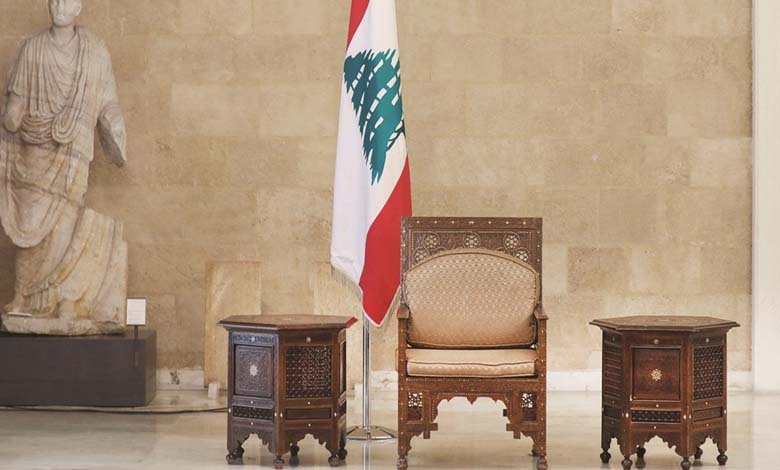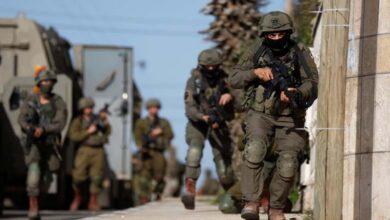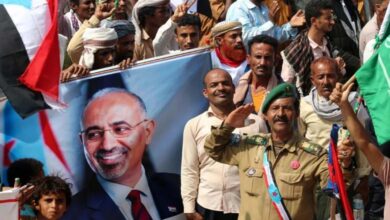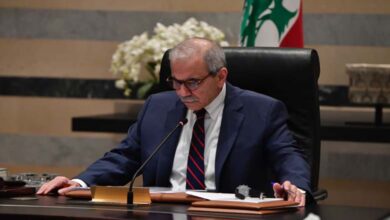Washington and Riyadh Support ‘Third Option’ to End Lebanon’s Presidential Vacancy
The Lebanese opposition rejects Joseph Aoun’s candidacy for the presidency, questioning his ability to reach consensus with political forces.

The Lebanese Parliament will convene tomorrow, Thursday, to elect a president, but there are no signs of a political breakthrough. None of the candidates currently meet the legal quorum for election. According to informed Lebanese sources, Army Commander General Joseph Aoun has the backing of the United States and Saudi Arabia, but the opposition opposes his candidacy, deeming him a figure lacking consensus.
-
Salameh freezes his file indefinitely by manipulating the Lebanese jdiciary
-
How does Hezbollah seek to threaten the Lebanese people in the face of unity and solidarity against it?
The Lebanese newspaper Al-Akhbar reported that the United States, France, and Saudi Arabia have recently intensified efforts to persuade parliamentary blocs to vote for Joseph Aoun during tomorrow’s session.
A Saudi delegation, led by Prince Yazid bin Farhan, responsible for the Lebanese file, visited Beirut on Sunday to hold talks with Lebanese parties as part of the Kingdom’s efforts to resolve the crisis.
-
The crisis is ravaging the Lebanese economy… What are the solutions?
-
This is how Hezbollah exploits the infrastructure of the Lebanese army
The Lebanese website An-Nashra revealed that the Saudi envoy met with several MPs. While he did not exert pressure to push for Joseph Aoun’s election, he highlighted the qualities required for the presidency, which he believes are embodied in the army commander, especially amid Lebanon’s complex crises, worsened by tensions between Israel and Hezbollah and a fragile truce.
However, this Saudi initiative faced opposition from MPs who reject the so-called “third option” represented by Joseph Aoun, a solution often used to resolve presidential crises in Lebanon.
-
Economic and financial catastrophe… The Lebanese government warns: we will not be able to pay salaries
-
What’s behind the Lebanese parliament’s refusal to hold a session to elect a new president?
The list of candidates includes:
- Joseph Aoun, Army Commander,
- Elias Baissari, Acting Director General of General Security, backed by Hezbollah and Amal,
- Jihad Azour, former Finance Minister, supported by opposition forces,
- Samir Geagea, leader of the Lebanese Forces,
- Sleiman Frangieh, leader of the Marada Movement,
- MPs Neemat Frem and Ibrahim Kanaan, and former ministers Ziad Baroud and Jean-Louis Cardahi.
-
After years of denial, Hassan Nasrallah admits the involvement of the Lebanese Hezbollah in the war in Yemen
-
Evidence of Hezbollah’s Condemnation in Yemen.. What will the Lebanese State do?
During his visit to Lebanon on Monday, U.S. envoy Amos Hochstein advocated for Joseph Aoun as a candidate meeting international standards. While maintaining apparent neutrality among candidates, Hochstein stated that international criteria primarily apply to Joseph Aoun. He also emphasized the importance of implementing UN Resolution 1701, reorganizing political life based on transparency standards, and rebuilding the state to secure financial support.
Parliament Speaker Nabih Berri opposed Joseph Aoun’s candidacy, citing a lack of consensus and constitutional amendment issues required for his election. He argued that the army commander lacks the necessary qualities to broker agreements with political forces.
-
Germany ban the activities of the Lebanese Hezbollah
-
US ambassador describe the murder of the Lebanese activist Lokman Slim as a barbaric action
Discussions were also held between Gebran Bassil, Nabih Berri, and Hezbollah representatives to secure votes for Elias Baissari and block Joseph Aoun’s path.
The Lebanese Forces, the largest Christian bloc, are expected to meet with allies on Wednesday evening to back a single opposition candidate. However, it remains unclear whether Joseph Aoun will be their choice.
Conversely, some political blocs and independent MPs, including Druze leader Walid Jumblatt, have openly supported Joseph Aoun.
-
Israel Urges Lebanese Citizens to Immediately Move Away from Hezbollah Sites
-
Washington Post reveals how Lebanese pay the price for Iranian threats and ongoing Hezbollah-Israel clashes
Traditionally, army commanders have often been chosen to resolve presidential crises, except for Michel Aoun, elected in 2016 through an agreement between Hezbollah and Saad Hariri. In 2008, Michel Sleiman, then army commander, was elected after two years of presidential vacancy.
Caretaker Prime Minister Najib Mikati expressed optimism on Wednesday that Parliament would elect a new president on Thursday after over two years of vacancy.
-
New U.S. Sanctions Targeting Yemeni Houthis and Lebanese Hezbollah
-
Lebanese Plan for Deporting Syrian Prisoners












